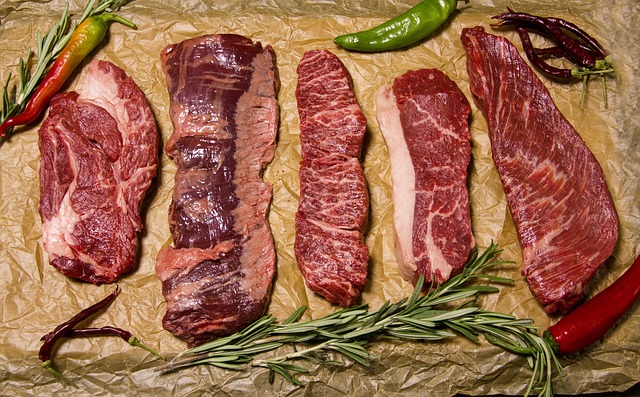
In the culinary world, the debate between white meat and dark meat has long been a topic of discussion. While some prefer the mild flavor and leaner profile of white meat, others swear by the juiciness and richer taste of dark meat. Beyond personal preference, understanding the nutritional differences between these two types of meat can help you make informed choices for your health.
Article Contains
What is white meat?
White meat typically refers to the lighter-colored meat of poultry, such as chicken and turkey. It is found in the breast and wing areas of the bird. White meat is lower in fat than dark meat and is often praised for its mild flavor and tender texture. It is a popular choice for those who want to reduce their fat intake or follow a lean protein diet.

What is dark meat?
Dark meat is higher in fat compared to white meat and is known for its richer flavor and juicier texture. It also contains more myoglobin, a protein that helps muscles use oxygen more efficiently, giving it a darker color. While it may be higher in calories and fat, dark meat also contains more iron, zinc, and certain vitamins than white meat.

Nutritional Comparison Between White Meat and Dark Meat
Here’s a basic nutrition table comparing dark meat and white meat:
| Nutrition (per 100g) | Dark Meat | White Meat |
|---|---|---|
| Calories | 239 | 165 |
| Protein | 27.3g | 31.0g |
| Total Fat | 13.4g | 3.6g |
| Saturated Fat | 3.8g | 1.0g |
| Monounsaturated Fat | 5.9g | 1.0g |
| Polyunsaturated Fat | 2.8g | 0.8g |
| Cholesterol | 97mg | 73mg |
| Iron | 1.1mg | 0.7mg |
| Zinc | 2.4mg | 1.3mg |
| Vitamin B12 | 0.4mcg | 0.3mcg |
| Vitamin D | 0.9IU | 0.3IU |
| Calcium | 13mg | 9mg |
Health Implications
Impact on Cholesterol Levels
White meat is often considered a healthier choice than dark meat when it comes to cholesterol levels. This is because white meat generally has lower levels of saturated fat, which is known to raise LDL cholesterol, often referred to as “bad” cholesterol. High levels of LDL cholesterol can increase the risk of heart disease and stroke. By choosing white meat over dark meat, individuals can help manage their cholesterol levels and reduce their risk of cardiovascular issues.
Red meat has long been associated with high cholesterol and cardiovascular disease due to its high levels of saturated fat, says the American Heart Association.
But according to the study, published in the American Journal of Clinical Nutrition, red meat’s effects on cholesterol are just the same as white meat products like chicken and turkey when compared with people who get their protein elsewhere, like from vegetables.
Relationship with Heart Health
The relationship between white and dark meat and heart health is complex. While white meat is often promoted as a heart-healthy choice due to its lower saturated fat content, some studies suggest that the type of fat found in dark meat may not be as harmful as previously thought. Dark meat contains higher levels of monounsaturated and polyunsaturated fats, which are considered heart-healthy fats. These fats can help reduce LDL cholesterol levels and lower the risk of heart disease when consumed in moderation.
Effects on Weight Management
When it comes to weight management, both white and dark meat can be part of a healthy diet. White meat is often favored for its lower calorie and fat content, making it a good choice for those looking to lose or maintain weight. However, dark meat can also be included in a balanced diet, as it provides important nutrients like iron and zinc. The key to weight management is portion control and overall dietary balance. Incorporating a variety of foods, including both white and dark meat, can help ensure that you get the nutrients you need while managing your weight effectively.
Conclusion
In the white meat vs dark meat debate, there is no clear winner in terms of health benefits. Both types of meat offer unique nutritional profiles and can be part of a balanced diet. Ultimately, the choice between white and dark meat comes down to personal preference, cooking methods, and overall dietary needs. Incorporating a variety of meats into your diet can ensure you receive a range of nutrients while enjoying the flavors and textures each has to offer.
